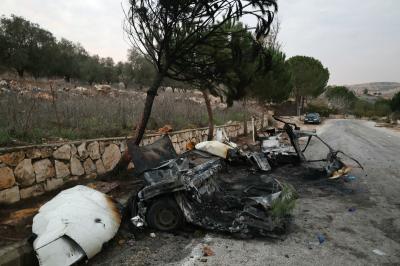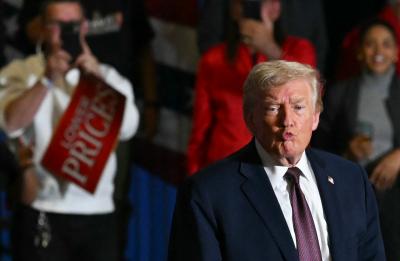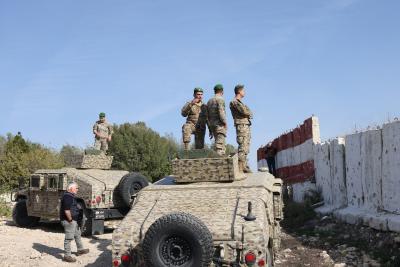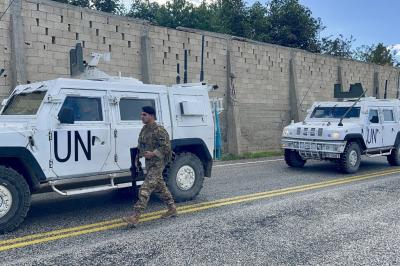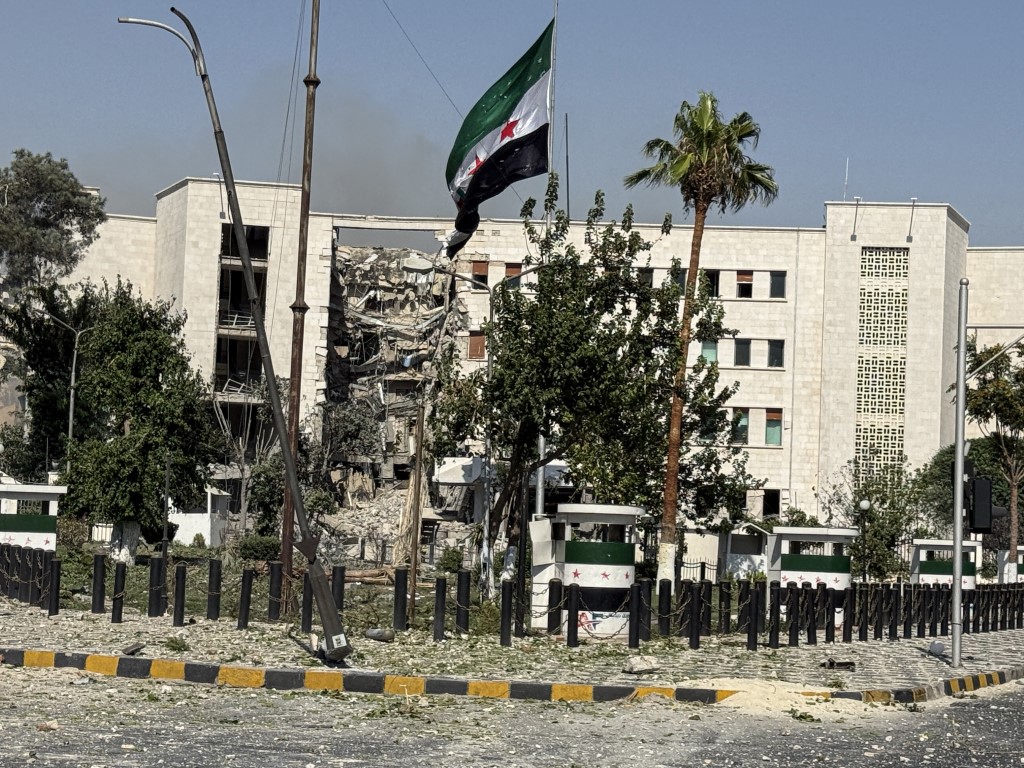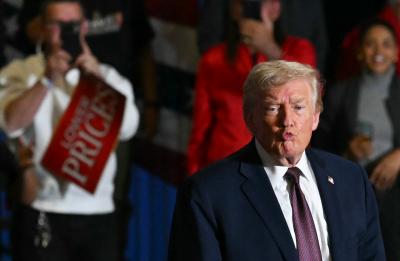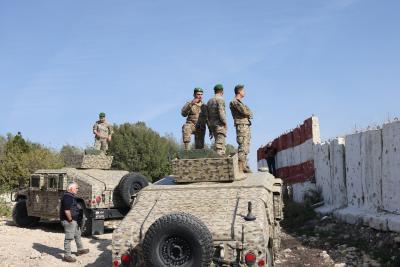The latest Israeli strikes on Syria left little doubt about the Netanyahu government’s stance toward Damascus, swiftly dispelling recent waves of misguided optimism about potential normalization between the two countries—some having even gone so far as to suggest a timeline for a peace agreement.
But this is the most ideologically extreme government in Israel’s history, pursuing its most aggressive expansionist vision since 1967. And its intentions toward Syria have been clear since the fall of the previous regime. Israel wasted no time launching unprecedented airstrikes and even ground incursions, becoming the de facto powerbroker in southern Syria—from the occupied Golan Heights to Suweida. Today, it also wields influence in northern Syria, particularly in areas under Kurdish control.
These moves were largely enabled by a miscalculation on the part of Damascus—both a misunderstanding of Israel’s objectives and a failure to grasp the American position. Adding to that was an ill-fated episode of Syrian-Israeli contact in Azerbaijan.
The Syrian leadership, including President Ahmad al-Sharaa, appeared to take Israel’s so-called “peaceful” overtures at face value. What they failed to understand was Netanyahu’s deep commitment to Israel’s Druze citizens and the powerful bond—both cultural and blood—that connects them with their Druze brethren in Syria.
Once armed factions resumed their brutal campaigns of killing, humiliation, and desecration of Druze holy sites—regardless of whether this was orchestrated by al-Sharaa himself or carried out by undisciplined militias—the Israeli government responded within the framework of what it sees as its historical and moral obligation to the Druze. This is a community that has shown steadfast loyalty to the Israeli state since formally joining its military in 1956.
Often referred to as a "blood pact," this relationship goes far beyond the military. Druze citizens of Israel, though comprising just 3% of the population, are prominent across academia, business, politics, and media. As such, they form an influential lobby that Netanyahu, already facing domestic challenges, cannot afford to alienate, especially during election season.
But the Druze question is not the sole factor shaping Israel’s approach to al-Sharaa. Netanyahu does not trust this Islamist regime and seeks its eventual downfall. Until that becomes possible, he aims to weaken it militarily, incrementally, and persistently.
From the onset of Syria’s civil war, Israel has tested a defense doctrine built around a “heavy-weapon-free” buffer zone stretching dozens of miles beyond its border. Officially, this is meant to prevent a repeat of the October 7, 2023, Hamas attack. The security zone extends east of the 1974 ceasefire line in the Golan and is fortified by a ground barrier and a declared military sphere of influence reaching up to 52 miles inside Syrian territory.
When al-Sharaa violated this red line—not just with foot soldiers, but with tanks, armored vehicles, and artillery—Israel struck back swiftly.
The Syrian regime hadn’t accounted for such a response. What began as local clashes between Bedouin militias and Druze factions—accused of being remnants of the old regime and allegedly aided by ex-officers—quickly escalated. Whether al-Sharaa masterminded the chaos or merely capitalized on it as a calculated move to reassert control over a long-resistant region, he soon found himself confronting a new and undeniable reality: Israel’s hard limits.
The militias deployed by al-Sharaa to attack Suweida were mostly irregulars—reconstituted jihadists and fighters brought from Idlib, now operating as the regime’s unofficial arms.
Israel’s response was gradual. Initially, it avoided direct strikes on the Damascus–Daraa highway. Instead, it deployed drones to hit targets near Suweida. As the regime forces advanced further, Israel ignored both Turkish sensitivities and American caution, launching air raids on regime positions in Suweida and striking the new General Security Directorate headquarters in Damascus. This culminated in attacks on the Republican Palace itself.
These strikes reset the situation to what it had been before the Baku negotiations. Al-Sharaa is now forced to abandon calculations that assumed solid American backing at home. He may be permitted to govern, but not at the expense of Israel’s vital interests.
It’s now clear that American signals supporting a unified Syrian state without autonomous regions were a misreading—not just of Syria’s reality, but of Washington’s own silence regarding plans to deploy Syrian troops in the south.
An Emerging Cold War: Israel vs. Turkey
What follows could be a deepening crisis between a fragile Syrian regime propped up by Turkish power, Arab financing, and U.S. protection—and the region’s minorities, who will increasingly turn to outside actors when threatened.
This brings the central question into focus: Is a cold war brewing between Israel and Turkey? No matter how hard Netanyahu tries, Israel’s power projection in Syria remains constrained.
Netanyahu has watched with growing concern as Turkey expands its strategic footprint in Syria—especially after subduing the Kurds—and across the broader region, including into Africa. Turkey’s growing influence poses a dual threat: it reshapes the regional balance and strengthens groups like Hamas inside Israel, with whom the Turkish regime shares deep ideological ties rooted in the Muslim Brotherhood.
Yet Netanyahu must first confront a more immediate obstacle: the U.S. rejection of his grand, expansionist vision for Syria. He must persuade President Donald Trump that subcontracting Syria to Turkey—a key NATO ally—or even allowing Ankara to mediate major regional files, comes at Israel’s expense. Turkey’s large capacity for regional influence allows it to serve as a broker in the kind of security and political arrangements the U.S. desires but Israel cannot deliver.
A confrontation between Israel and Turkey remains unlikely. But the trajectory will depend heavily on U.S. management of al-Sharaa’s regime and the broader regional order. Washington’s goal is to stabilize Syria and the region as a whole to pave the way for peace and normalization—objectives that will prevent Netanyahu from opening a full-fledged Syrian front like those in Gaza, Lebanon, or Iran.
Please post your comments on:
[email protected]
 Politics
Politics
